Seaweed offers powerful health benefits — from supporting thyroid balance to improving gut health and heart function. Rich in iodine, antioxidants, and unique marine compounds, seaweed is one of the world’s most nutrient-dense foods. Understanding its science-backed benefits helps you safely include it in your diet while avoiding risks linked to excessive intake or contamination.

This guide explains the top 10 proven benefits of seaweed, how to eat it safely, possible side effects, and expert-backed recommendations from authoritative sources like the National Institutes of Health (NIH) and Harvard T.H. Chan School of Public Health.
What Is Seaweed? (Overview and Nutritional Profile)
Seaweed is a type of edible marine algae found along coastlines and oceans worldwide — known for its exceptional nutritional density and health-promoting compounds. It has been a dietary staple in Asian cultures for centuries, especially in Japan, Korea, and China, and is now recognized globally as a functional superfood.
What Exactly Is Seaweed?
Seaweed refers to macroalgae — plant-like organisms that grow in the ocean and absorb minerals directly from seawater.
Unlike land plants, seaweeds have no roots, stems, or leaves; instead, they use specialized tissues to absorb nutrients and sunlight efficiently.
Seaweed is broadly categorized into three main types based on pigment and nutrient profile:
| Type | Color | Common Varieties | Key Nutrients |
|---|---|---|---|
| Brown Seaweed | Brown/Olive | Kelp, Wakame, Kombu | Rich in iodine, fucoxanthin, and alginate |
| Red Seaweed | Red/Purple | Nori, Dulse | High in protein, iron, and antioxidants |
| Green Seaweed | Green | Sea lettuce, Ulva | Abundant in magnesium, fiber, and chlorophyll |
(Source: FAO – Edible Seaweeds Classification and Uses, 2024)
Nutritional Composition of Seaweed

Seaweed is often called the “vegetable of the sea” because it delivers an impressive range of nutrients in very small servings.
Even a few grams of dried seaweed can supply essential vitamins, trace minerals, and antioxidants far beyond those found in most land vegetables.
Key Nutrients per 10 g Dried Seaweed (Average Range):
- Iodine: 300–1000 mcg (vital for thyroid hormone synthesis)
- Calcium: 70–150 mg
- Magnesium: 40–80 mg
- Iron: 2–4 mg
- Protein: 2–3 g (includes all essential amino acids)
- Fiber: 3–4 g (mainly soluble polysaccharides like alginate and fucoidan)
- Vitamins: A, C, E, K, and B12 (in select species like nori)
- Antioxidants: Fucoxanthin, phlorotannins, carotenoids, and polyphenols
- Omega-3 Fatty Acids: EPA and DHA — plant-based marine sources
(Data Source: NIH Office of Dietary Supplements – Iodine Fact Sheet, 2025; Journal of Applied Phycology, 2024)
Seaweed as a Sustainable Superfood
Beyond its health benefits, seaweed is also considered a climate-friendly and sustainable food source:
- Zero freshwater or fertilizer required for cultivation.
- Absorbs CO₂ and helps mitigate ocean acidification.
- Provides marine habitat and supports biodiversity.
According to the World Health Organization (WHO) and United Nations Food and Agriculture Organization (FAO), seaweed farming aligns with global sustainability goals by offering a low-impact, nutrient-rich food source that contributes to both human and environmental health.
10 Proven Health Benefits of Seaweed (Science-Based)
1. Supports Thyroid Function
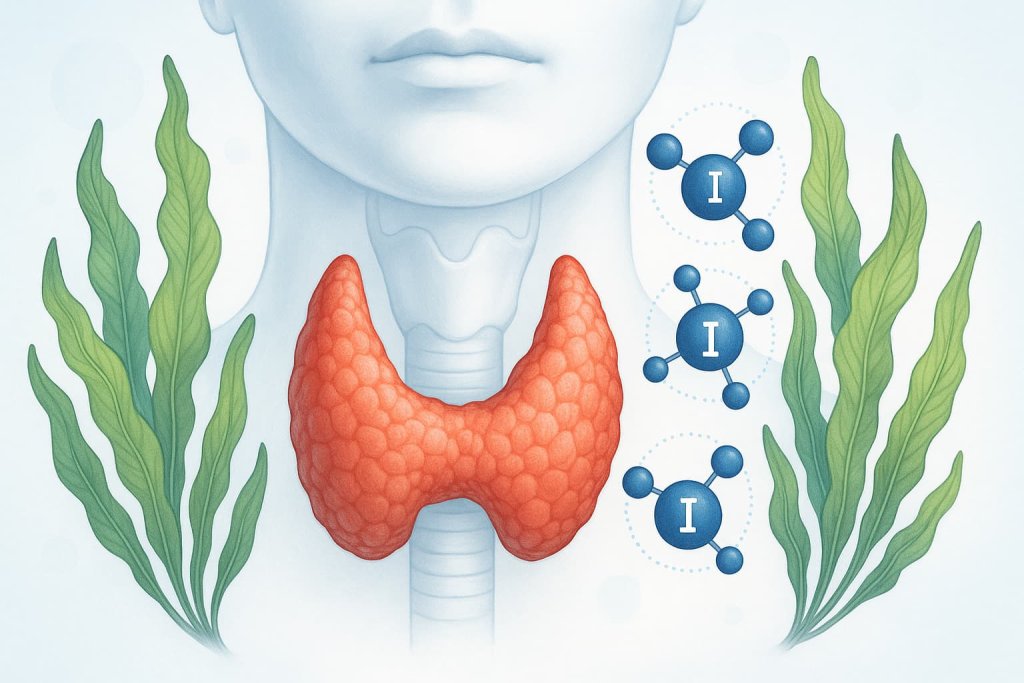
Seaweed is the richest natural source of iodine, a mineral that plays a crucial role in the production of thyroid hormones (T3 and T4) which regulate metabolism, energy levels, and body temperature.
A mild iodine deficiency can lead to fatigue, weight gain, or goiter, while too much iodine — especially from kelp — can overstimulate or suppress thyroid function.
According to the National Institutes of Health (NIH) Office of Dietary Supplements (2025), adults need around 150 mcg of iodine daily, and most seaweeds provide this amount in just a few grams of dried product. However, kelp may contain over 1000 mcg per serving, so moderation is key.
Research Insight:
A 2023 review published in Frontiers in Nutrition confirmed that moderate seaweed intake supports healthy thyroid hormone levels and helps prevent iodine deficiency without exceeding safe upper limits.
Key Tip: Choose low-iodine species such as nori or wakame over kelp if you consume seaweed frequently.
2. Promotes Heart Health
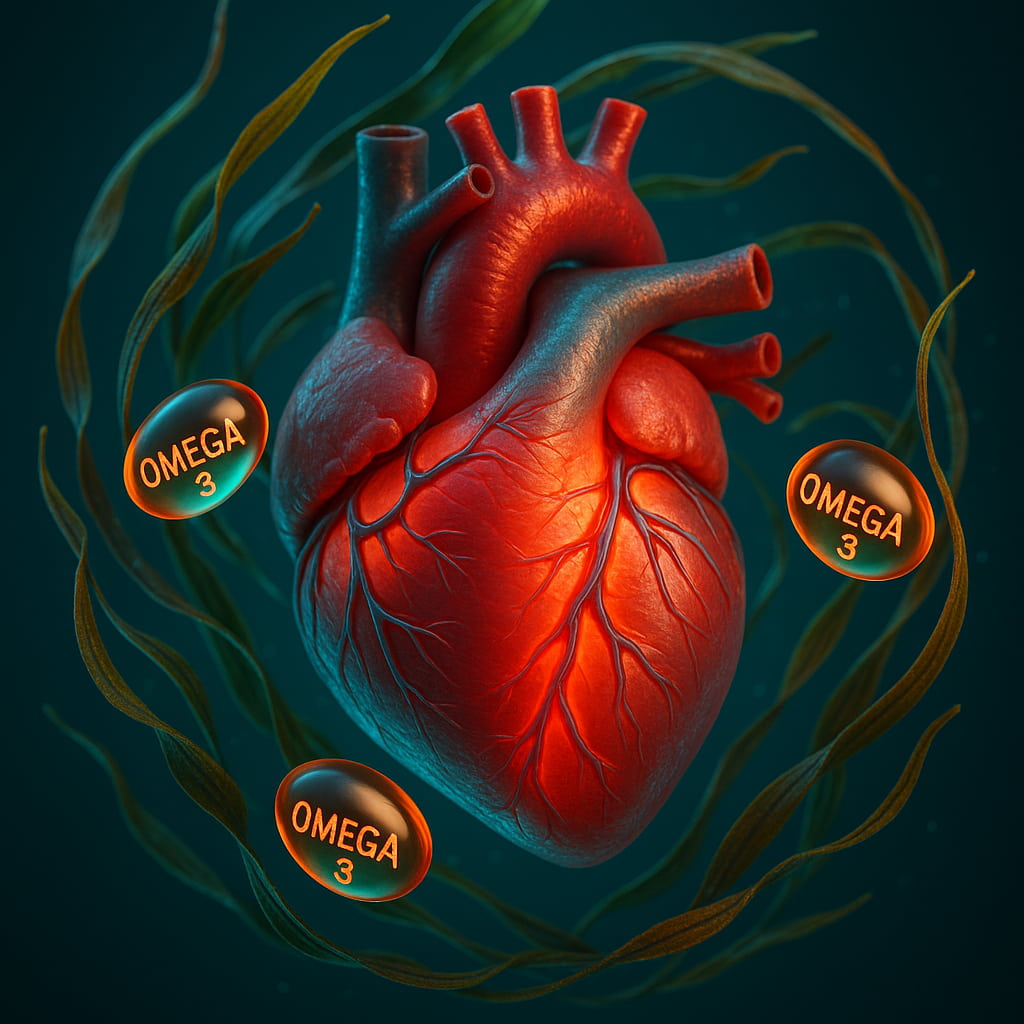
Seaweed supports cardiovascular wellness through its omega-3 fatty acids (EPA and DHA), soluble fiber, and polyphenols.
These compounds help reduce blood pressure, LDL (“bad”) cholesterol, and triglycerides while improving vascular elasticity.
Fucoidan and alginate, found in brown seaweed like kombu and wakame, help regulate lipid metabolism and improve blood circulation. Regular intake is associated with lower heart disease rates in coastal Asian populations.
A 2022 Nutrients meta-analysis found that seaweed intake reduced total cholesterol by up to 9% in adults with elevated lipid levels.
Harvard experts note that omega-3-rich marine foods — including seaweed — can lower cardiovascular mortality by 20–25% (Harvard T.H. Chan School of Public Health).
Practical Tip: Combine seaweed salads with olive oil and citrus to enhance omega-3 absorption.
3. Aids Weight Management

Seaweed is naturally low in calories yet high in dietary fiber and alginates, which increase satiety and slow digestion.
This makes it a smart addition for people looking to manage appetite or reduce body fat.
The alginate in brown seaweed binds dietary fat in the gut, reducing absorption. A 2023 study published in Pharmacological Research found that participants taking alginate supplements experienced lower appetite and body weight reduction over 12 weeks.
Bonus: Seaweed also helps stabilize post-meal blood sugar levels, further supporting weight control.
Try This: Add wakame or dulse flakes to soups, salads, or smoothies for extra fiber and nutrients.
4. Improves Gut Health and Digestion
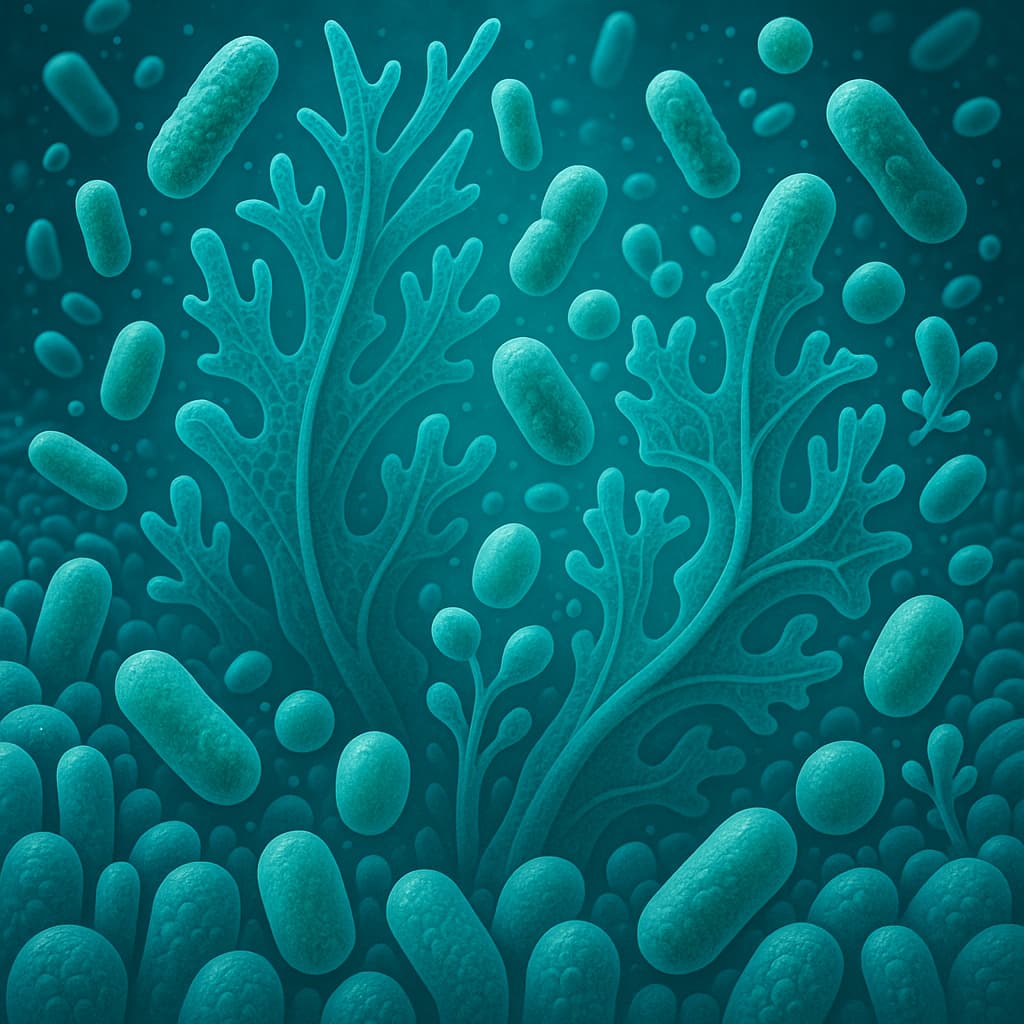
Seaweed acts as a natural prebiotic, feeding beneficial gut bacteria such as Bifidobacteria and Lactobacillus.
Its unique polysaccharides — fucoidan, laminarin, and alginate — enhance microbial diversity and reduce intestinal inflammation.
A 2024 study in the Journal of Functional Foods reported that fucoidan intake increased gut-friendly bacteria and reduced inflammatory markers in adults.
A balanced microbiome supports better digestion, stronger immunity, and even mental well-being.
Tip: Include seaweed in fermented dishes (like miso soup) to boost prebiotic and probiotic synergy.
5. Strengthens Immunity
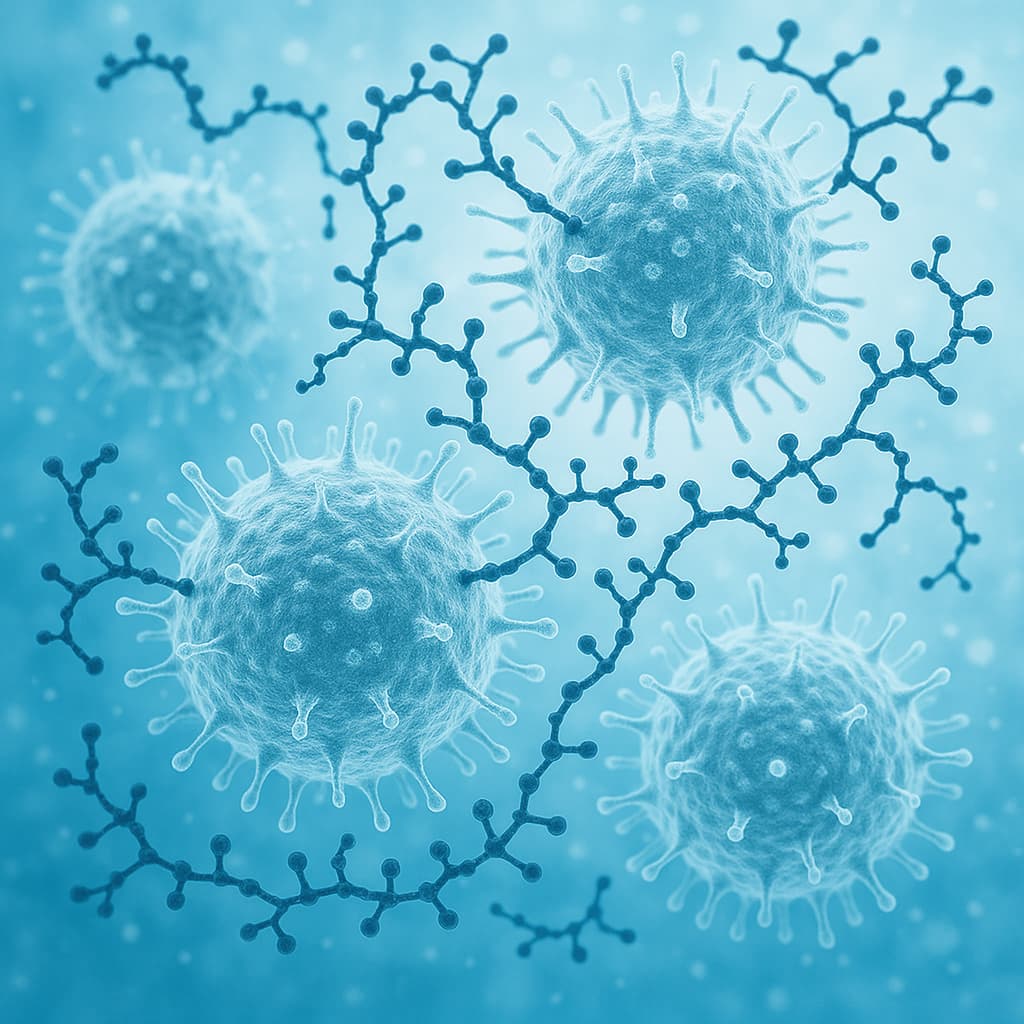
Compounds like fucoidan and laminarin, abundant in brown seaweed, help regulate immune responses and improve defense against pathogens.
These polysaccharides:
- Activate natural killer (NK) cells and macrophages.
- Enhance antibody production.
- Protect against viral and bacterial infections.
A 2023 review in Marine Drugs found that fucoidan enhanced antiviral activity against influenza, herpes, and hepatitis viruses while reducing inflammatory cytokines (TNF-α, IL-6).
Reference: Marine Drugs – Seaweed Bioactive Compounds and Immunity (2023)
Health Tip: Regularly include small amounts of brown seaweed (like wakame or kombu) to naturally fortify immune health.
6. Supports Blood Sugar Control
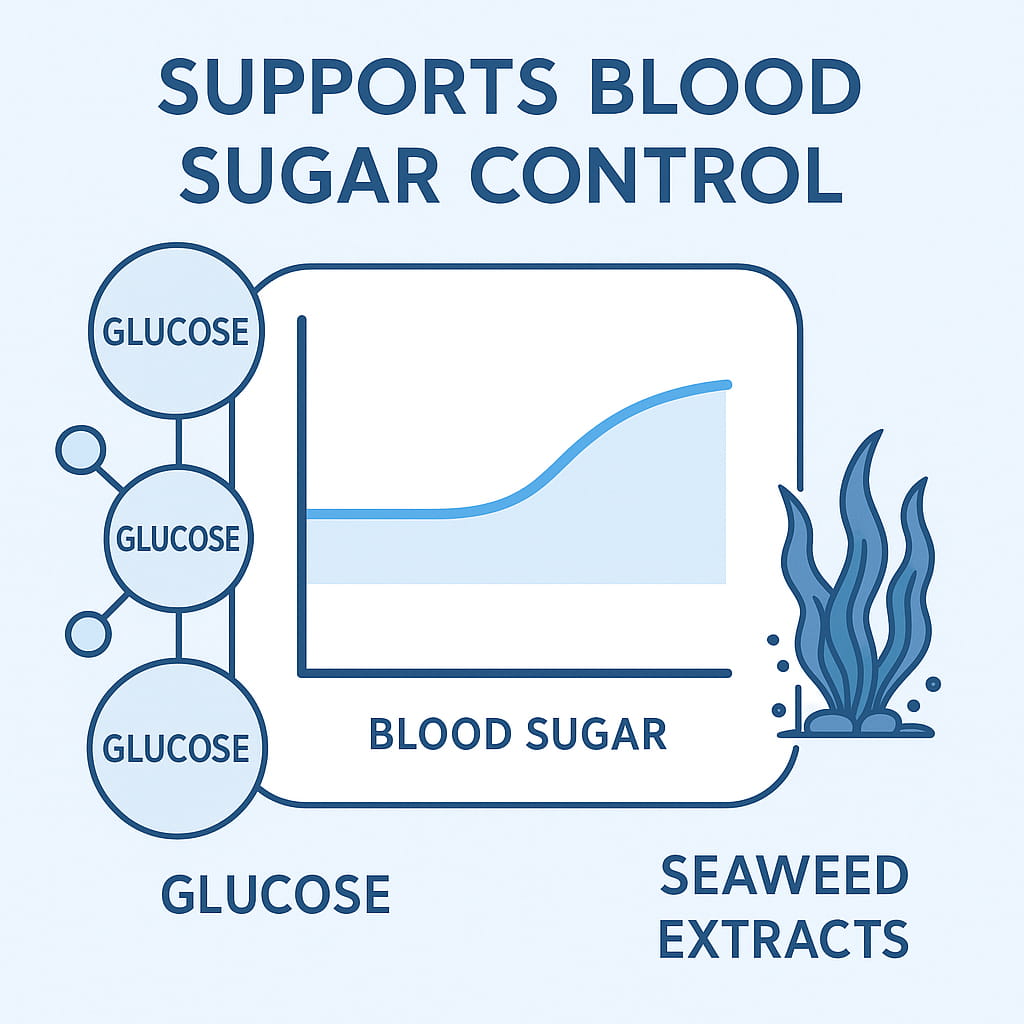
Seaweed may improve blood sugar regulation and insulin function through multiple mechanisms:
- Fucoxanthin, a carotenoid in brown algae, enhances insulin sensitivity.
- Alginate slows carbohydrate digestion, reducing glucose spikes.
- Fiber delays gastric emptying and stabilizes energy levels.
A 2024 clinical trial in Nutrients found that adults with type 2 diabetes consuming wakame extract daily for 8 weeks showed significantly lower fasting glucose and HbA1c levels.
Reference: Nutrients Journal – Seaweed and Glycemic Regulation (2024)
Tip: Add powdered seaweed to soups or whole-grain dishes to help maintain stable blood sugar throughout the day.
7. Promotes Healthy Skin and Hair

Seaweed is rich in vitamin E, amino acids, and antioxidants that support collagen production and protect against UV-induced damage.
It also delivers minerals like zinc, magnesium, and iodine, essential for maintaining scalp and skin hydration.
A 2024 Cleveland Clinic article highlights that seaweed extracts are commonly used in skincare for anti-aging, hydration, and anti-inflammatory effects.
Tip: Enjoy seaweed as part of your diet and in topical products — studies show it enhances skin elasticity and hair strength naturally.
8. Protects Against Oxidative Stress
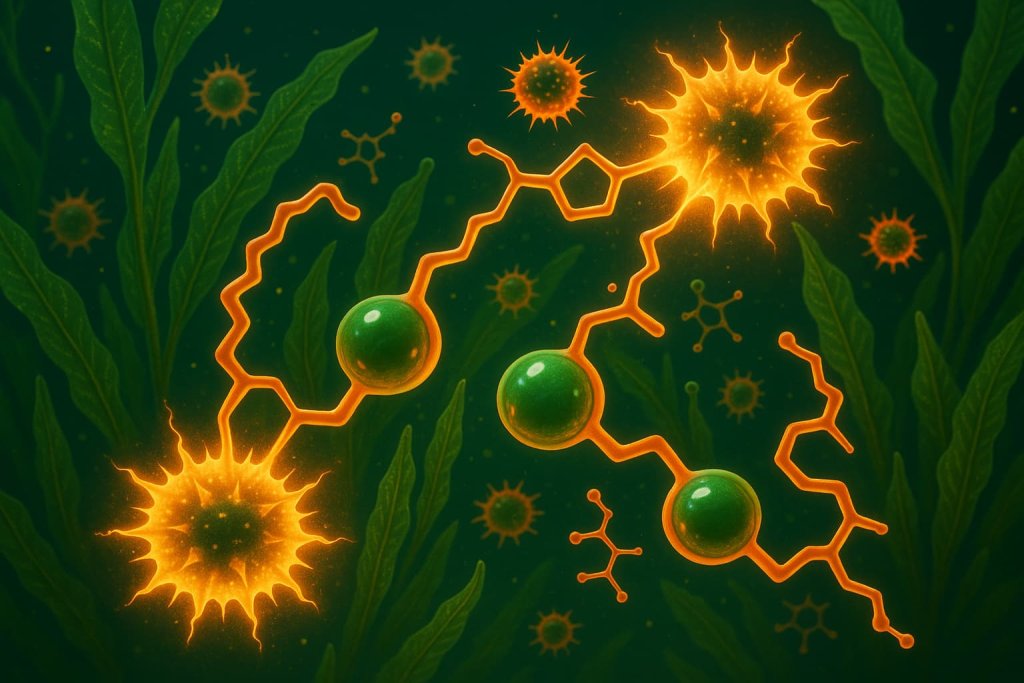
Seaweed contains a powerful mix of antioxidants, including fucoxanthin, vitamin C, phlorotannins, and carotenoids, which help neutralize free radicals.
This antioxidant activity protects cells from oxidative damage that contributes to aging, inflammation, and chronic disease.
A 2023 Antioxidants journal review found that seaweed extract supplementation significantly improved oxidative stress markers in adults exposed to environmental pollutants.
Reference: MDPI – Antioxidants Journal: Marine Algae and Oxidative Stress (2023)
Tip: Combine seaweed with vitamin C–rich foods (like lemon or bell peppers) to boost antioxidant uptake.
9. May Reduce Cancer Risk (Preliminary Evidence)
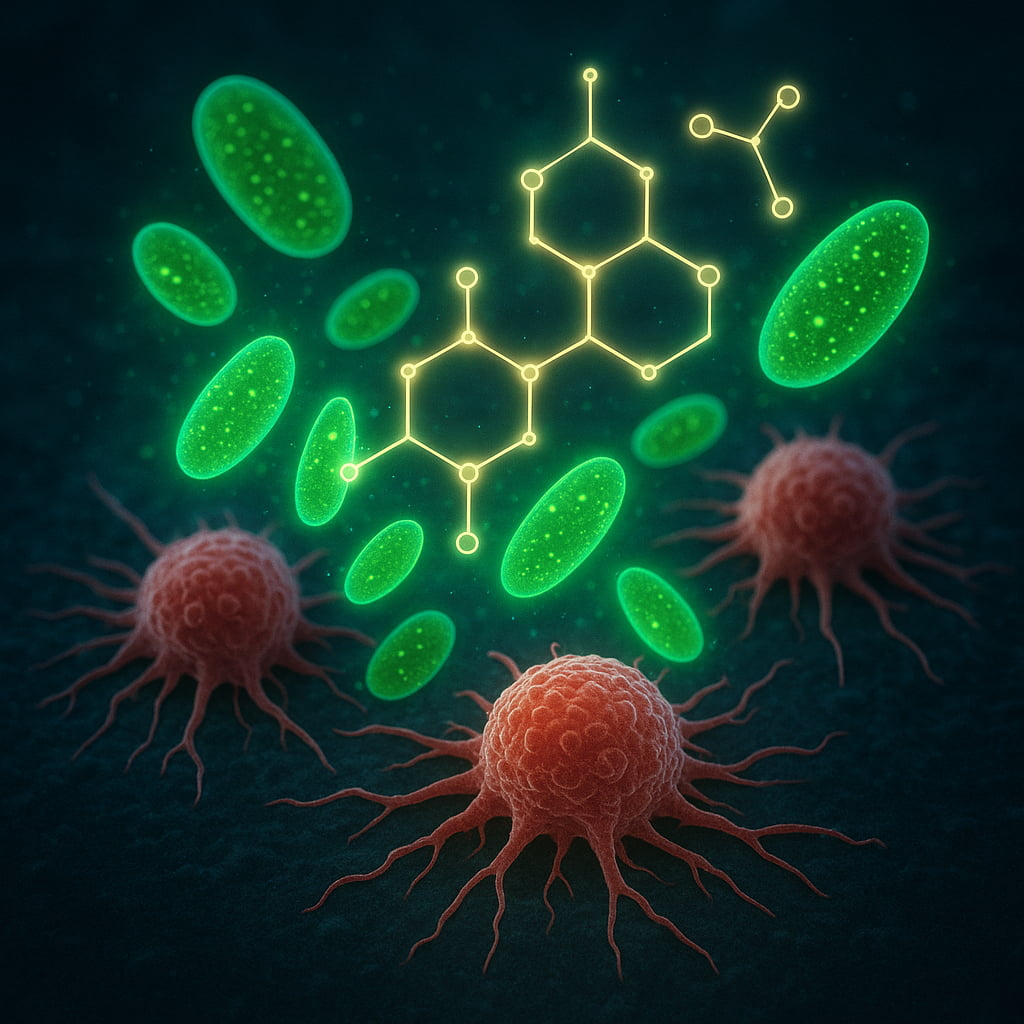
Emerging scientific evidence suggests that seaweed’s bioactive compounds — particularly fucoidan, phlorotannins, and fucoxanthin — may help protect cells from changes associated with cancer development.
These natural compounds are being studied for their ability to influence molecular pathways involved in cell growth and immune response.
How Seaweed Compounds May Work:
- Induce apoptosis (programmed cell death): Helps eliminate abnormal cells before they multiply.
- Inhibit angiogenesis: Limits the formation of new blood vessels that tumors need to grow.
- Reduce oxidative DNA damage: Seaweed antioxidants such as fucoxanthin help neutralize free radicals that can harm DNA.
A 2023 review titled “Ten Years of Research on Fucoidan and Cancer” (published by the National Center for Biotechnology Information, NCBI) summarized multiple laboratory and animal studies showing that fucoidan extracts can suppress cancer cell proliferation and metastasis in breast, colon, and prostate cancer models.
However, researchers emphasized that human clinical evidence is still limited, and further large-scale trials are needed to confirm these effects.
Important Note:
Seaweed should not be viewed as a treatment or cure for cancer. Current findings are preliminary and pertain mainly to lab and animal research. Individuals undergoing cancer treatment should consult their healthcare provider before adding concentrated seaweed supplements to their diet.
Key Takeaway:
Including edible seaweed in moderation as part of a balanced, plant-rich diet may offer protective antioxidant benefits that support overall cellular health — but it is not a substitute for medical therapy.
10. Enhances Longevity and Overall Health

Populations with regular seaweed intake — such as in Japan and South Korea — consistently rank among the world’s longest-living.
Researchers attribute this to seaweed’s nutrient density, low calories, and protective compounds that enhance metabolism, immunity, and vascular health.
The World Health Organization (WHO) recognizes seaweed as a functional food that supports a balanced, plant-forward diet rich in fiber and minerals.
Study Highlight:
A 2024 review in Frontiers in Nutrition linked traditional seaweed-rich diets to lower risks of metabolic syndrome and cardiovascular disease.
How to Eat Seaweed for Best Results
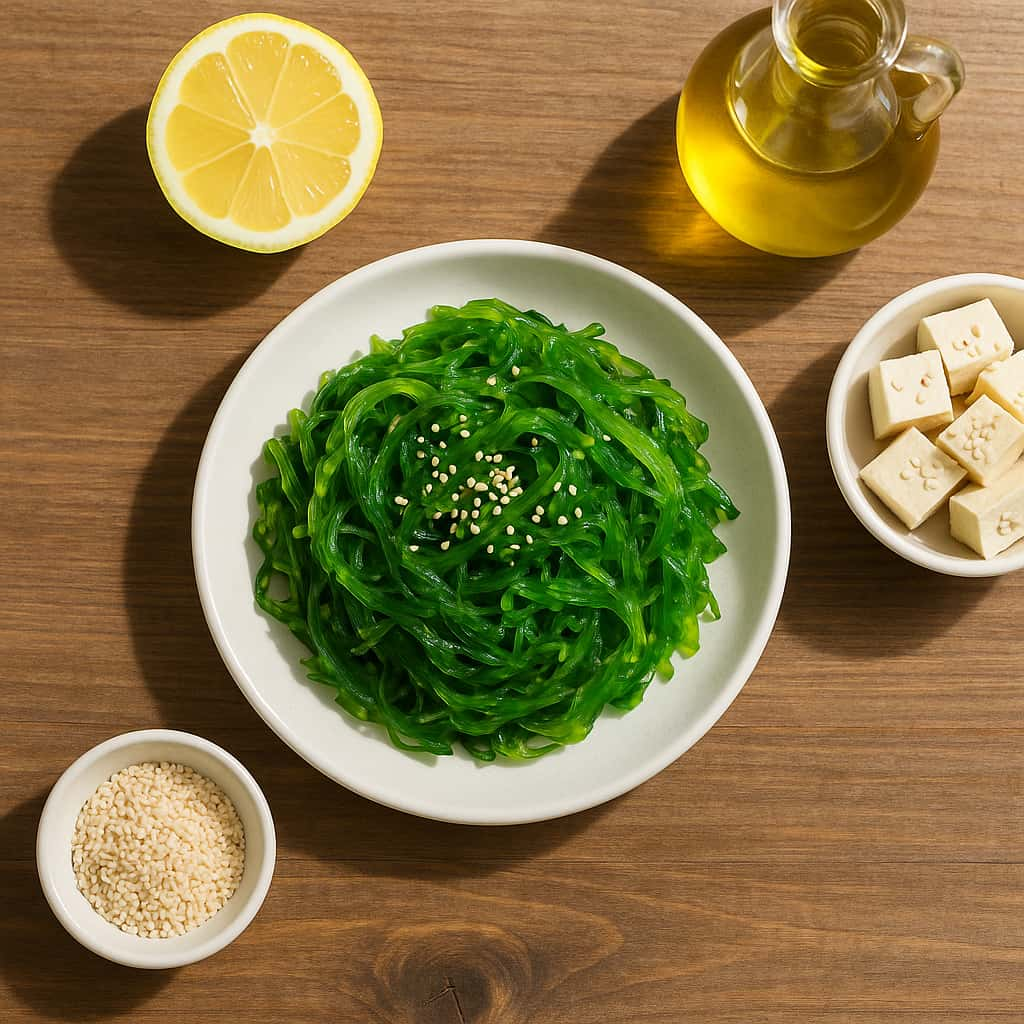
To safely enjoy seaweed’s powerful health benefits, focus on moderation, preparation, and sourcing quality. While seaweed is rich in essential nutrients like iodine, omega-3s, and antioxidants, excessive or poorly sourced products can lead to imbalances or contamination.
Here’s how to include it safely and effectively in your diet.
Recommended Serving Size and Frequency
- Eat 2–3 servings per week of edible seaweed (5–10 grams dried or about ½ cup rehydrated per serving).
- Rotate between different varieties — such as nori, wakame, dulse, and kombu — to balance nutrient intake and minimize iodine overload.
- If you consume kelp, limit it to once a week due to its very high iodine content.
- Avoid eating large daily amounts unless your iodine needs are medically supervised (for example, in thyroid deficiency cases).
Reference: NIH Office of Dietary Supplements – Iodine Intake Guidelines (2025)
Best Cooking and Preparation Methods
To maximize nutrients and flavor while keeping sodium and iodine levels balanced:
- Soups & Broths: Add wakame or kombu to miso soup or ramen for natural umami and minerals.
- Salads & Smoothies: Mix dulse flakes or sea lettuce into salads and smoothies for fiber and antioxidants.
- Snacks: Use roasted nori sheets or seaweed crisps as low-calorie alternatives to chips.
- Seasoning: Sprinkle powdered seaweed over rice, tofu, or eggs for an instant nutrient boost.
Tip: Lightly toast or soak dried seaweed to enhance digestibility and preserve nutrients.
Pairings to Boost Nutrient Absorption
Certain foods improve the body’s ability to absorb minerals and antioxidants from seaweed:
| Nutrient | Pairing | Benefit |
|---|---|---|
| Iron & Calcium | Citrus fruits, bell peppers | Vitamin C enhances mineral uptake |
| Omega-3 Fatty Acids | Olive oil, avocado | Improves absorption of healthy fats |
| Iodine | Selenium-rich foods (eggs, Brazil nuts) | Supports thyroid hormone conversion |
| Antioxidants | Green tea, berries | Synergistic antioxidant protection |
Reference: American Heart Association – Omega-3 and Healthy Eating
Storage and Sourcing Guidance
Proper storage and sourcing ensure seaweed remains safe and nutrient-rich:
- Storage: Keep dried seaweed in an airtight container, away from light and moisture. Once opened, store in a cool, dry place or refrigerate.
- Fresh Seaweed: Rinse thoroughly and refrigerate for up to 3 days.
- Sourcing Tips:
- Buy certified organic or lab-tested brands.
- Look for labels confirming testing for heavy metals (arsenic, cadmium, lead).
- Avoid products from polluted coastal areas or unverified online sellers.
- Choose low-sodium options, as some processed seaweed snacks contain added salt.
Reference: FAO – Edible Seaweed Quality Standards, 2024
Possible Side Effects and Precautions
While seaweed is one of the most nutrient-dense foods on Earth, excessive intake or contaminated sources can pose health risks. To stay safe, it’s important to choose high-quality products, monitor portion sizes, and understand how iodine and heavy metals may affect your health. The following safety information is based on the latest scientific and regulatory data.
Potential Health Risks and Safe Practices
| Risk | Description | Guidance |
|---|---|---|
| Iodine Excess | Certain seaweeds — especially kelp (kombu) — contain extremely high levels of iodine, which may disrupt normal thyroid hormone production and lead to hypo- or hyperthyroidism if consumed frequently. | Choose low-iodine species like nori or wakame. Limit kelp to small portions once a week. Individuals with thyroid conditions should consult a doctor before regular use. |
| Heavy Metals | Seaweed can absorb trace amounts of arsenic, cadmium, lead, and mercury from seawater. While most commercial products remain below safety thresholds, frequent intake from untested sources may raise exposure risk. | Buy certified, lab-tested brands that conduct heavy-metal screening and publish results. Avoid unregulated or imported seaweed from unknown origins. |
| Medication Interactions | High-iodine foods may interfere with medications for thyroid regulation, blood pressure, or anticoagulant therapy. | If you’re taking prescription medication, consult your healthcare provider before consuming seaweed regularly. |
| Pregnancy & Breastfeeding | Excess iodine or contaminants may affect fetal and infant thyroid development. Culinary amounts are safe, but concentrated powders or supplements should be avoided unless prescribed. | Use small food-based portions only, and check labels for iodine and sodium content. |
| Allergic Reactions | Though rare, allergic reactions may occur in individuals sensitive to marine proteins or shellfish. | Stop consumption if you experience rash, swelling, or itching, and seek medical advice. |
Updated Regulatory Reference and Safety Data
According to the U.S. Food and Drug Administration (FDA), seaweed can absorb trace metals naturally from the marine environment. The agency monitors levels of arsenic, cadmium, lead, and mercury in foods, including seaweed, to ensure consumer safety.
For detailed testing results and public data, refer to:
👉 FDA – Testing Results for Arsenic, Lead, Cadmium, and Mercury (2025)
Additionally, the Harvard T.H. Chan School of Public Health notes that while seaweed offers valuable nutrients, regular consumption should be balanced and mindful of iodine intake to avoid thyroid imbalance.
👉 Harvard Nutrition Source – Seaweed Nutrition and Safety
Safe Consumption Tips
- Check product labels for iodine and sodium content.
- Prefer organic or sustainably farmed seaweed from tested waters.
- Store dried seaweed in airtight containers away from moisture and sunlight.
- Rotate between species (nori, dulse, wakame) to balance nutrient intake.
- Avoid overreliance on seaweed supplements — whole food sources are safer and easier to control.
Frequently Asked Questions (FAQ)
1. Can I eat seaweed every day?
Small daily amounts (1–2 grams dried) are safe if you vary the types and avoid excess kelp. Moderation prevents iodine overload.
2. Which seaweed is healthiest?
Nori and wakame are top choices — rich in minerals but lower in iodine than kelp.
3. Can seaweed cause thyroid issues?
Only in high doses. Balanced intake supports thyroid health; overconsumption may cause hypo- or hyperthyroidism.
4. Is seaweed safe during pregnancy?
Yes, in culinary amounts (like sushi nori or soups). Avoid high-dose kelp supplements or powders.
5. Is seaweed suitable for vegans?
Absolutely — it provides trace vitamin B12, iron, and omega-3 fatty acids, making it a valuable plant-based source of key nutrients.
6. How can I know if my seaweed is safe?
Choose organic, lab-tested brands that disclose heavy-metal screening and iodine content on labels.
7. Can children eat seaweed?
Yes, in small portions. Add flakes to soups or rice dishes for a mild, nutritious boost — but avoid salty, flavored snacks.
Conclusion
Seaweed is a nutrient-dense, sustainable superfood that supports thyroid health, heart function, immunity, and digestion — but balance and sourcing are crucial for safety.
To get the best results:
- Eat 2–3 times per week.
- Rotate among nori, wakame, kelp, and dulse.
- Choose certified, low-sodium, and lab-tested products.
By consuming seaweed mindfully, you can enjoy its vast health benefits while protecting against iodine excess or contamination.
Start small, stay consistent, and make seaweed a smart part of your clean, heart-healthy diet.
